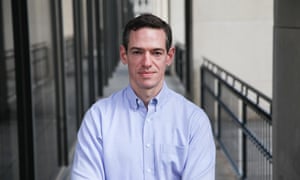By Benjamin Ryan | The Guardian
The persistence of mental health hardships among gay and bisexual men, which endure even as LGBTQ people gain greater acceptance and civil rights, can be explained at least in part by the corrosive effects of status consciousness, competitiveness and racism within the gay community itself.
Those are the striking and potentially controversial findings of a study published in January in the Journal of Personality and Social Psychology that may broaden appreciation of the unique stressors faced by gay and bisexual men.
Gay and lesbian people have a more than fourfold higher rate of suicide than the general population. Among transgender people, the gulf is even wider. LGBTQ people are more than twice as likely as heterosexuals to experience depression and anxiety and to misuse substances, which can all fuel HIV risk.
Over the last two decades, an expanding body of scholarship has attributed these disparities to anti-LGBTQ stigma.
“But that argument feels not totally complete for many LGBTQ people,” says John Pachankis, an associate professor of public health and psychiatry at Yale and the lead author of the new study.
Travis Salway, an assistant professor of social epidemiology at Simon Fraser University in British Columbia, says the excessive suicide rate among sexual and gender minorities is “too large of a disparity for it to be explained, certainly by chance and probably by even one factor”.
Past research into such mental health disparities, both academics said, has typically overlooked drags on mental health that may come from within sexual and gender minority subcultures.
In 2017, the journalist Michael Hobbes bucked this trend in a deep dive for HuffPost into what he called an epidemic of gay loneliness. The article’s popularity among gay and bisexual men was a testament to a hunger for narratives that validate persistent feelings of unease about gay culture.
Pachankis’s paper represents the field of psychology catching up with something that to many has long been painfully self-evident: gay men can be awfully hard on each other. Moreover, as the paper suggests, the pressure to keep up with the Joneses can be profoundly taxing in ways unique to this segment of the population.
Sources of stress
A small handful of papers have laid the groundwork for exploring the deleterious effects of stressors within the gay community. Pachankis’s study is the most rigorous yet.
The five-year study is based on five psychological studies, including four meticulously designed experiments with nine cohorts of gay and bisexual men.
Pachankis and his colleagues found that the stress gay and bisexual men reported experiencing related to their community’s preoccupation with sex, status and competition, as well as racism within their ranks, was associated with compromised mental health, especially for those lower on the gay-status totem pole.
These connections held even when the investigators controlled for traditional factors tied to the stress of being a stigmatized sexual minority as well as general life stress.
“Pachankis’s research suggests factors such as physique, income and race can be major sources of anxieties”.
The study culminated with a series of experiments in which gay and bisexual men participated in a chat room with other men. When the participants experienced rejection from gay or bisexual men they perceived to be of superior status, because of a higher level of masculinity, attractiveness and income, this proved particularly stressful.
Such a status imbalance did not intensify feelings of rejection if the higher-status man was straight.
Rejection from gay and bisexual peers, Pachankis found in a follow-up study soon to be published in the Annals of Behavioral Medicine, was also associated with an increased likelihood that men would engage in sex that put them at risk for HIV.
Read more >> http://ow.ly/w3oP50zCO4J








